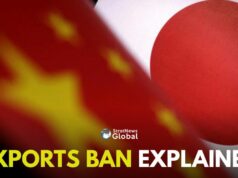Asoke Mukerji, who retired after 37 years in the IFS as India’s Ambassador and Permanent Representative to the United Nations in New York, has rich experience in different aspects of multilateral diplomacy. He feels that the challenges facing multilateralism due to an ineffective UN Security Council are a direct threat to India’s core interests, and advocates reviewing the provisions of the UN Charter to serve India better.
In this edition of The Gist, Ambassador Mukherji decodes the double standards at play in the U.N., traces the various forces at play stalling reforms, and explains why and how India can and must play a role in pushing for urgent reforms of the global body.
Apart from the unfairness of the system which allows any one of the five permanent members of the Security Council, or P5, to veto resolutions without having to justify it, there’s another major reason.
“India is expected to become the third largest economy in the world by 2047 or well before 2047,” he notes.
“When you look at how India’s GDP is created, you come to this statistic that 50% of India’s GDP is from international trade. So if the world is fracturing and conflicts are growing, that is impacting directly on India’s own aspirations. So therefore India has to take the lead.”
In this fascinating discussion which traces the history of the U.N. and how the P5, unwilling to let go of its powers, has consistently stalled any attempt at reform, Ambassador Mukherji spells out how India, as the voice of the Global South, can take the lead for change.
And he should know.
Mukherji joined the Indian Foreign Service in July 1978, and retired as India’s Ambassador and Permanent Representative to the United Nations in New York in December 2015. He spearheading the successful implementation of Prime Minister Narendra Modi’s proposal for the UN to declare 21 June every year as the International Yoga Day with a record 177 co-sponsoring countries in 75 days.
In 2015, he led India’s negotiations on the unanimously adopted UN Agenda 2030 for Sustainable Development, aligned with India’s national priorities.
Between 1995-1998, he served as India’s Delegate to the WTO, where he represented India in 11 trade disputes before the Dispute Settlement Body. In the Ministry of External Affairs, he led India’s international dialogues on countering terrorism, cyber issues, and supervised India’s participation in international organizations.
His previous diplomatic assignments include the UK (2007-2010, as Deputy High Commissioner with the personal rank of Ambassador), Kazakhstan (2005-2007 as Ambassador), Russia (2001-2005, as DCM), UAE (1998-2001, as Consul General in Dubai), Uzbekistan, Tajikistan, and Turkmenistan (1992, as India’s first resident Charge d’affaires), the United States, and former Yugoslavia.
He is presently a Distinguished Fellow of the Vivekananda International Foundation, New Delhi, and a member of the International Institute of Strategic Studies, London. He has published 8 books so far. His book India and the United Nations: a Photo Journey 1945-2015 was presented by Prime Minister Narendra Modi to former UN Secretary General Ban Ki Moon in September 2015. In 2018 he was awarded a Doctor of Civil Laws (honoris causa) degree by the University of East Anglia for his contributions to diplomacy.
In a career spanning three decades and counting, Ramananda (Ram to his friends) has been the foreign editor of The Telegraph, Outlook Magazine and the New Indian Express. He helped set up rediff.com’s editorial operations in San Jose and New York, helmed sify.com, and was the founder editor of India.com.
His work has featured in national and international publications like the Al Jazeera Centre for Studies, Global Times and Ashahi Shimbun. But his one constant over all these years, he says, has been the attempt to understand rising India’s place in the world.
He can rustle up a mean salad, his oil-less pepper chicken is to die for, and all it takes is some beer and rhythm and blues to rock his soul.
Talk to him about foreign and strategic affairs, media, South Asia, China, and of course India.




